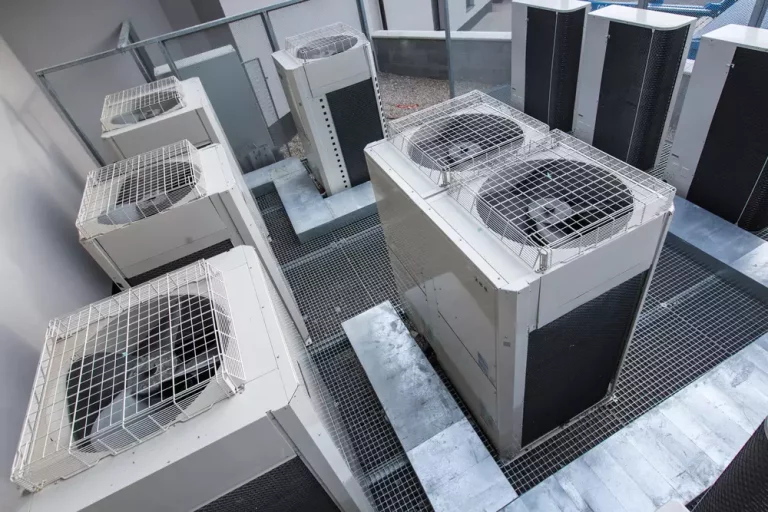As warmer months approach, it’s crucial to ensure your HVAC system is ready to handle the increase in temperature. Proper maintenance not only guarantees comfort but also extends the life of your system, improves energy efficiency, and reduces unexpected breakdowns. This comprehensive guide provides practical tips to prepare your HVAC system for the summer, covering essential aspects from cleaning to professional inspections.
Start With a Thorough Cleaning
A clean HVAC system is fundamental to its efficiency and longevity. Begin by replacing or cleaning the air filters, as dirty filters restrict airflow and reduce the system’s efficiency. Ideally, filters should be changed every 30 to 90 days. Next, focus on cleaning the condenser coils located in the outdoor unit. Over time, these coils accumulate dust and debris, hindering the system’s ability to expel heat. Use a garden hose to gently rinse the coils, being careful not to damage them.
Additionally, ensure the area around the outdoor unit is clear of debris, plants, or other obstructions. This clearance is vital for optimal airflow and to prevent any blockages that can cause the system to work harder than necessary. Lastly, check and clean the vents inside your home. Blocked or dirty vents can significantly affect air quality and the overall efficiency of your HVAC system.
Regularly Inspect and Maintain Indoor Comfort Systems
Regular inspections and maintenance of indoor comfort systems are vital for their efficient operation. At least twice a year, have a professional HVAC technician inspect your system. They will check for any signs of wear and tear, ensure all components are functioning correctly, and perform necessary adjustments or repairs. This proactive approach not only prevents minor issues from escalating into major problems but also ensures that your indoor comfort systems operate at peak efficiency. Regular maintenance also includes checking thermostats for accuracy and calibration if necessary. A well-maintained thermostat is crucial for the effective operation of indoor comfort systems, as it regulates the temperature and maintains a comfortable environment in your home.
Optimize Ductwork for Maximum Efficiency
The ductwork in your home plays a crucial role in the overall efficiency of your HVAC system. Leaky or poorly insulated ducts can lead to significant energy losses, making your system work harder and increasing your utility bills. To ensure maximum efficiency, inspect the ductwork for any signs of leaks, holes, or disconnections. Sealing these leaks with duct sealant or metal tape can dramatically improve the system’s efficiency. Additionally, consider adding insulation to ducts that run through unconditioned spaces such as attics or crawlspaces to prevent heat loss. Regularly cleaning the ducts to remove dust and debris also helps maintain optimal airflow, further enhancing the efficiency of your HVAC system.
Embrace Smart Thermostat Technology for Enhanced Control
Incorporating smart thermostat technology is a forward-thinking way to enhance control over your HVAC system. Smart thermostats allow for precise temperature adjustments and can learn your schedule and preferences, adjusting the indoor climate accordingly. This not only improves comfort but also contributes to energy savings. By programming your thermostat to adjust temperatures when you’re not home or during cooler parts of the day, you can reduce unnecessary energy consumption.
Additionally, many smart thermostats provide detailed energy usage reports, helping you understand your consumption patterns and identify opportunities for further efficiency improvements. They can also alert you to any HVAC system issues, enabling timely maintenance and preventing minor problems from escalating. Investing in a smart thermostat is a cost-effective way to modernize your HVAC system, offering both immediate comfort benefits and long-term savings.
Schedule Professional HVAC Inspections and Tune-ups
The final, yet crucial step in preparing your HVAC system for the warmer months is scheduling professional inspections and tune-ups. An experienced HVAC technician can conduct a comprehensive evaluation of your system, identifying potential issues that might not be visible to the untrained eye. These inspections often include checking refrigerant levels, testing system controls, inspecting electrical components, and ensuring the thermostat is functioning correctly.
Regular professional tune-ups help maintain system efficiency, prolonging its lifespan, and preventing unexpected breakdowns during peak summer months. These sessions also provide an opportunity to clean parts of the system that are difficult to access, such as internal coils and blower components. Investing in these professional services ensures that your HVAC system operates at its best, providing optimal cooling and comfort throughout the warmer season.

